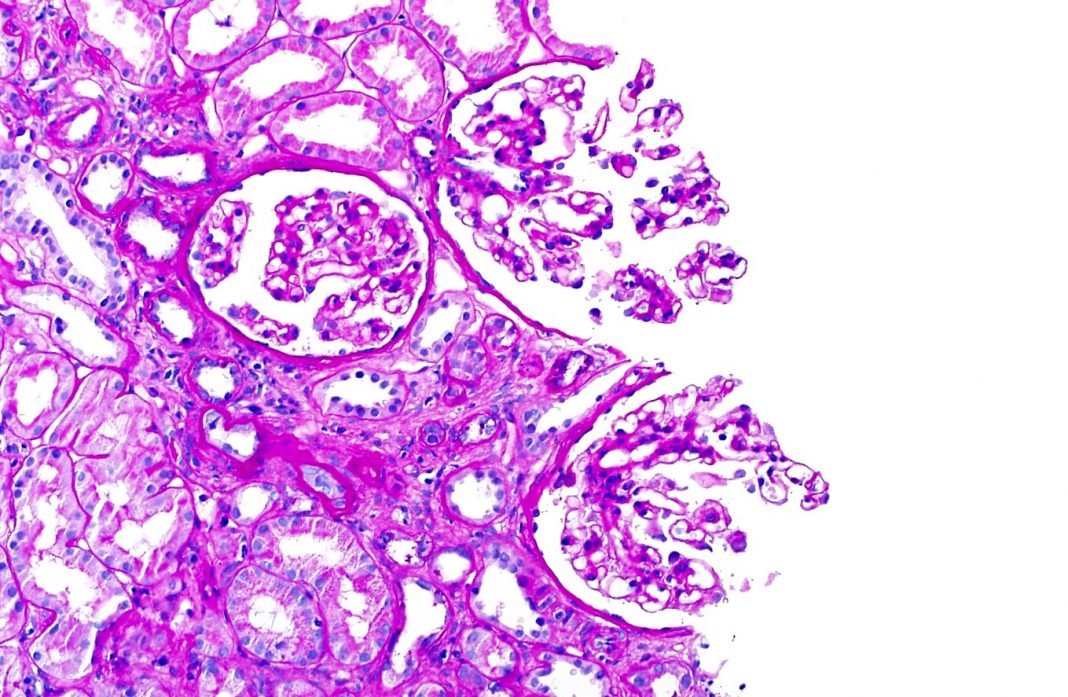The FDA has rejected Reata Pharmaceuticals’ new drug application (NDA) for bardoxolone methyl (“bardoxolone”) for the treatment of patients with chronic kidney disease (CKD) caused by Alport syndrome.
Bardoxolone was one of two Reata drugs that propelled the company’s stock to stock price surges as high as 81 percent in 2019 and 2020 based on positive clinical data readouts, leading to speculation that the company would be acquired by Amgen.
And while shares of Reata fell 10 percent at the start of trading (9:30 a.m. ET) today, to $23.49, investors later rallied behind the stock, sending the price surging again 25 percent to $32.74 at the close of trading, despite reporting a wider net loss for 2021 of $297.386 million vs. a $247.752 million net loss for 2020.
Investors appeared reassured by the company’s reporting fourth-quarter earnings per share of $2.35, above the $2.31 analyst consensus forecast, as well as stating that its $590.3 million in cash and cash equivalents as of December 31, 2021, would enable it to fund operations through the end of 2024, though it is down from $818.2 million a year earlier.
Reata’s stock price fell, and re-rose, after the company late Friday acknowledged the FDA had sent it a Complete Response Letter (CRL) indicating it could not approve the bardoxolone NDA.
“Based on its review, the FDA concluded that it does not believe the submitted data demonstrates that bardoxolone is effective in slowing the loss of kidney function in patients with Alport syndrome and reducing the risk of progression to kidney failure, and has requested additional data to support the efficacy and safety of bardoxolone,” Reata said in a statement.
The agency’s conclusion came nearly three months after the FDA’s Cardiovascular and Renal Drugs Advisory Committee unanimously recommended against approval of bardoxolone on December 8, 2021. The committee voted no on whether evidence provided by Reata showed that bardoxolone was effective in slowing the progression of CKD in patients with Alport syndrome—and that its benefits outweighed its risks.
FDA staffers took issue in a pre-meeting Briefing Document with the design of the Phase III CARDINAL trial, specifically whether it adequately assessed bardoxolone’s effect on progression of kidney disease and its differentiating between reversible pharmacodynamics effects and slowing of disease progression.
The staffers also raised questions on the study’s estimated glomerular filtration rate (eGFR) off-treatment measurements, washout period length, and bardoxolone’s safety profile (specifically increased urinary albumin-to-creatinine ratio, increased blood pressure, and decreased body weight.
“This outcome was not entirely surprising, considering the negative briefing documents and unanimous vote against bardoxolone on the sole voting question,” Joseph P. Schwartz, Senior Managing Director, Rare Diseases and a senior research analyst with SVB Leerink, wrote in a research note.
He noted that Reata continues to study bardoxolone in the Phase III FALCON trial (NCT03918447) in patients with autosomal dominant polycystic kidney disease. The company has filed a protocol amendment to change the trial’s primary endpoint to the off-treatment eGFR change from baseline at week 108 (previously it was week 52). The sample size has increased from 550 to 850 patients; more than 500 patients are currently enrolled.
In its CRL, according to Reata, the FDA said its issues with bardoxolone “could be resolved by providing evidence of effectiveness that includes evidence from an adequate and well-controlled study showing a clinically relevant effect on the rate of loss of kidney function in patients with Alport syndrome or, alternatively, an effect on a clinical outcome (i.e., an endpoint that captures how patients with Alport syndrome feel, function, or survive).”
“In addition, the FDA stated that we would need to address whether bardoxolone has a clinically relevant effect on the QT interval [an electrocardiogram measure calculated as the time from the start of the Q wave to the end of the T wave] and show that the demonstrated clinical benefits of bardoxolone outweigh its risks,” Reata added.
“We plan to work closely with the FDA to bring this important medicine to patients in the U.S.,” Reata added.
“Significant disappointment”
“This outcome is a significant disappointment for our company, as well as the many patients, families, and investigators who have participated in our development program for bardoxolone in Alport syndrome patients,” added J. Warren Huff, Reata’s chairman and CEO. “We will continue to work with the FDA to confirm our next steps on our Alport syndrome program.”
Speaking with GEN Edge in January 2020, Huff explained how bardoxolone is designed to work:
“What’s very interesting about our pharmacology is that it treats the inflammatory basis of the disease; it doesn’t treat blood pressure,” Huff explained. “These patients are all on blood pressure medications, optimal blood pressure control. Our drug treats their mitochondrial dysfunction, which drives the inflammatory processes in the kidney. And when we give it, we see this acute recovery of their glomerular filtration rate (GFR). That’s maintained versus the placebos.”
In November 2019, Reata reported one-year data from a two-year study showing that patients dosed with bardoxolone showed improvement in their GFR at week 48 of about +5, 4.5 or 5 points, compared with a reduction of 4.5 to 5 points for patients randomized to placebo.
A year later in November 2020, Reata reported positive second-year data from the Phase III CARDINAL trial (NCT03019185) showing that at Week 100, intent-to-treat (ITT) patients treated with bardoxolone had a statistically significant improvement compared to placebo in mean change from baseline in eGFR of 7.7 mL/min/1.73 m2 . At Week 104 (four weeks after last dose in second year of treatment), patients in the ITT population treated with bardoxolone showed a statistically significant improvement compared to placebo in mean change from baseline in eGFR of 4.3 mL/min/1.73 m2.

